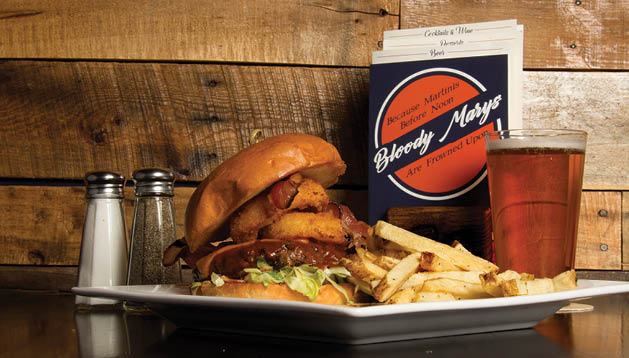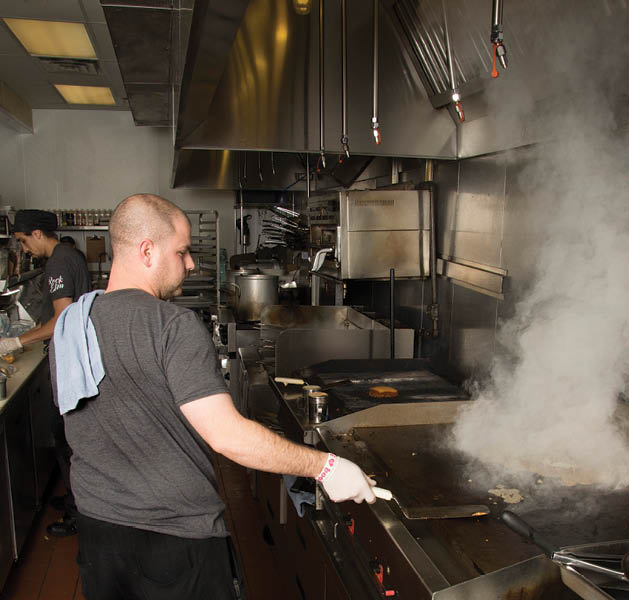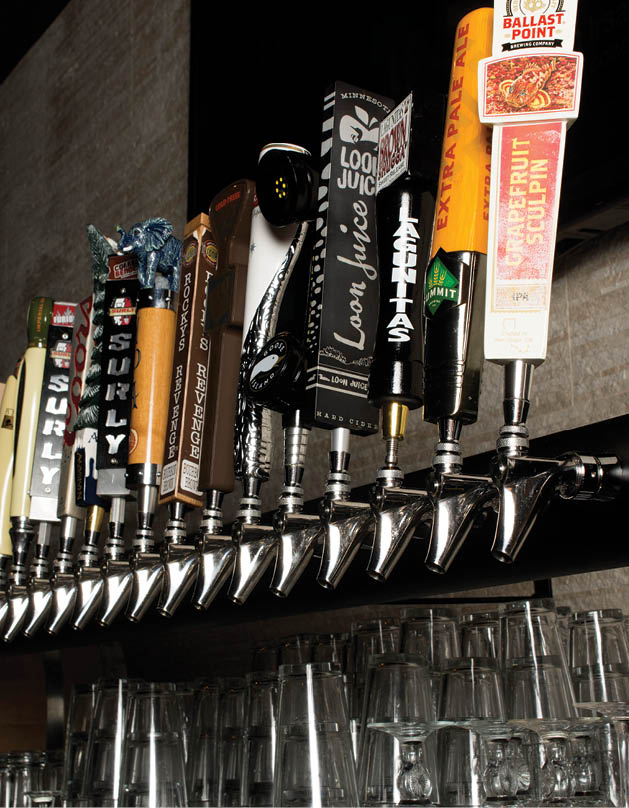Troy Reding knew Plymouth was ready. He knew that Plymouth was craving a spot for great food and drinks that residents could call their own—something that wasn’t just another chain. In October, he acted on that knowledge and opened Rock Elm Tavern in the former Eat Shop and Digby’s space at the intersection of Highway 55 and County Road 24.
Reding grew up in the restaurant business. He started 30 years ago as a bartender for TGI Fridays, working his way up through the ranks in a variety of hourly positions before moving into a management role. By the time he left the chain, he was a regional manager overseeing six locations.
“I had just finished up two years of college and was figuring out the next steps,” Reding says. “I got a job bartending at Fridays, then just never quite left. It turned into a lifelong journey.”
After 25 years at TGI Fridays, he left to become the vice president of operations for Blue Plate Restaurant Co., a local group that owns eight restaurants around the Twin Cities. He was in that role for more than four years when he decided the next step was opening up his own restaurant. He had worked for a chain. He had worked for a local group. The next step was to do it himself.
As a Plymouth resident, he and his business partner, Brad Sorenson, began scanning the area for locations. When they first starting looking at Rock Elm Tavern’s location, the former spot of a number of failed restaurants, he wasn’t sold at first—the stigma of being a deathtrap for restaurants left, pardon the pun, a bad taste in his mouth.
“Diners walk through the door and think, ‘Wow, this is different,’” Reding says. Yes, he knows all about the stigma and is making sure to smash it.
The partners went about re-imagining the space. The first step was shrinking —the old spots were too big and disjointed. It needed to be a size that worked for Rock Elm Tavern, and what they came up with is a more open space with seats for 175 diners. It’s smaller, but still large enough to accommodate a busy crowd, and has a different feel than the restaurants that came before.
With his experience, Reding says he has encountered just about everything the restaurant industry has to offer, so opening his own spot didn’t scare him. “It was fun,” he says.
The biggest difference was he no longer had the support of a large corporation to back his moves. His goal—and he apologizes if this sounds too simple—is to have great food and great service.
“Putting together a concept is about putting together what you like and what you know,” Reding says. “And making sure what you’re doing fits into the location you’re going into.”
To that end, Reding knew Plymouth was starving for his concept: A tavern with scratch-made food, great beer and well-crafted cocktails. To help him achieve his vision, he brought in chef Dustin Pallansch to shape the menu.
Pallansch graduated from culinary school in 2004 and went to work for four years at a restaurant in Arizona. He came to Minnesota to help open the popular Strip Club Meat and Fish in St. Paul, working there in 2008. From there he moved around to a few local spots, including spending more than five years at Blue Plate.
Throughout his career, Pallansch has learned to showcase flavor, something he attributes to his time in Arizona, in particular. “My flavors are extremely bold, bright and in your face,” the chef asserts. “If the menu says fennel, you better taste the fennel in the dish.”
For the Elm Rock Tavern menu, he wanted to bring upscale techniques to approachable food. As the tavern title suggests, the menu features things like burgers, steaks and pork chops. Burgers are the top seller, as Pallansch estimates they go through about 500 lbs. of ground beef a week.
“Over the past 12 years, I’ve seen so many things that have given me inspiration,” Pallansch says. “We wanted to take the [good] fussiness that is [found on the plates of] upscale fine dining and bring it into a suburban atmosphere.”
To make that happen, he and Reding spent more than three months on the menu, which went through several drafts. They focused on finding “uniquely great ingredients.” They strive to find the highest quality ingredients possible.
As they went through the process, the menu shrank. They didn’t want a large, overwhelming menu, and wanted to focus on doing fewer things great, instead of trying to be everything to everyone.
It’s a concept they feel will hit home for the Plymouth faithful. Both Reding and Pallansch have experience in urban settings. They’ve seen what it takes to succeed in the city, and they’re bringing that urban feeling to the suburbs.



(Counterclockwise from top: The Bourbon BBQ burger; Dustin Pallansch making the burgers; an array of local beers on tap.)






